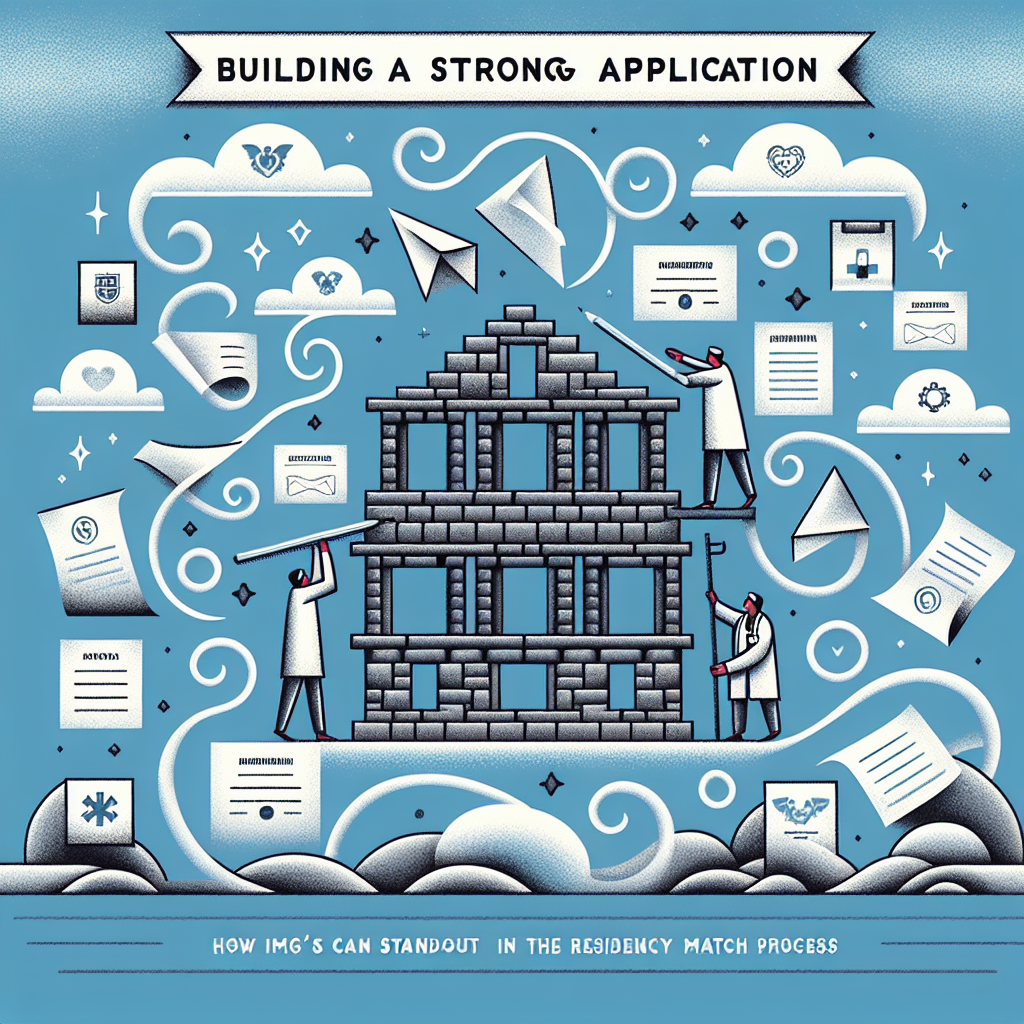The journey to becoming a licensed medical professional in the United States can be particularly challenging for International Medical Graduates (IMGs). Despite the hurdles, many IMGs successfully navigate the residency match process each year. If you’re an IMG hoping to stand out in this competitive environment, this comprehensive guide offers valuable insights and strategies for building a strong application.
Understanding the Residency Match Process
The residency match process is a critical step for all medical graduates, and it can feel overwhelming. Whether you’re an IMG or a graduate of a U.S. medical school, the stakes are high. The National Resident Matching Program (NRMP) matches thousands of applicants with residency positions each year, making it essential to excel in your application.
What Makes an IMG Stand Out?
There’s no single formula for success, but several key elements can set IMGs apart in the application process. The combination of academic achievements, clinical experience, and interpersonal skills plays a vital role in creating a well-rounded candidate.
Academic Excellence: Your Foundation for Success
Strong USMLE Scores
First and foremost, your USMLE scores are a crucial component of your application. These standardized tests evaluate your knowledge base and readiness for residency training. Aim for high scores, especially in Step 1 and Step 2 CK. Consider consistent study habits, practice exams, and review courses to maximize your potential.
Clinical Skills Assessment (CSA)
Completing the Clinical Skills Assessment (CSA) is essential for IMGs. This evaluation tests your clinical skills, including history-taking, physical examinations, and communication. Excelling in this assessment can build confidence and demonstrate your readiness for residency training.
Clinical Experience: Building Competence and Confidence
Hands-On Experience in the U.S.
Acquiring clinical experience in a U.S. healthcare setting is invaluable for IMGs. Participating in observerships, externships, or internships provides insight into the U.S. medical system and patient care standards. Networking with professionals in these settings can also lead to strong letters of recommendation.
Volunteering and Community Service
Involvement in community health initiatives or volunteer work not only enhances your application but also shows your commitment to patient care and social responsibility. These experiences can provide unique perspectives on healthcare delivery and the challenges faced by communities.
Crafting a Compelling Personal Statement
Telling Your Unique Story
Your personal statement is an opportunity to showcase your journey, motivations, and aspirations. Sharing your passion for medicine and the experiences that shaped you as a professional can help establish a connection with residency program directors. Be honest and personal, allowing your personality to shine through.
Highlighting Cultural Competence
As an IMG, you bring a global perspective to the healthcare landscape. Highlight how your international experience contributes to cultural competence, enhancing the diversity of the medical community. This quality is increasingly valued as healthcare becomes more globalized.
Comprehensive Letters of Recommendation
Choosing the Right Referees
Strong letters of recommendation (LoRs) can significantly influence your application. Seek out former attendings, supervisors, or mentors who know you well and can speak to your clinical skills, work ethic, and character. Aim for letters from U.S. physicians, as they are familiar with the local medical culture.
Personalizing Your Requests
When asking for letters of recommendation, communicate your goals and aspirations. Provide your referees with your CV, personal statement, and specific information about the programs you’re applying to, which can lead to more personalized and impactful letters.
Interview Preparation: Your Chance to Shine
Mastering Common Interview Questions
Preparing for residency interviews is crucial to your success. Familiarize yourself with common questions, such as those about your strengths, weaknesses, and ethical dilemmas. Practice your responses with peers or mentors to boost your confidence and improve your delivery.
Understanding the Program
Researching the residency programs you’re interviewing with is vital. Demonstrating your knowledge about the program’s mission, values, and training environment can help create a good impression. Tailor your answers to reflect how you align with their goals.
The Power of Networking
Building Relationships in Medicine
Networking can open doors that may not be otherwise available. Attend conferences, workshops, and local medical events to meet fellow IMGs and U.S. physicians. Building relationships can lead to mentorship opportunities and referrals for observerships or research positions.
Joining IMG Support Organizations
Consider connecting with organizations dedicated to supporting IMGs. Groups like the American Academy of Family Physicians (AAFP) and the Association of American Medical Colleges (AAMC) offer resources, webinars, and opportunities to meet fellow IMGs or mentors.
Conclusion: Your Path to Residency Success
The residency match process can be a daunting journey for IMGs, but with a strong application, you can increase your chances of standing out among a sea of candidates. By focusing on academic excellence, gaining relevant clinical experience, crafting a compelling personal statement, securing strong letters of recommendation, preparing for interviews, and networking effectively, you can build a robust application that highlights your unique skills and experiences.
Remember that each step you take brings you closer to your career in medicine. Stay positive, resilient, and passionate about your goals as you navigate the challenges of the residency match process. Your determination will be your greatest asset as you embark on this exciting path.


